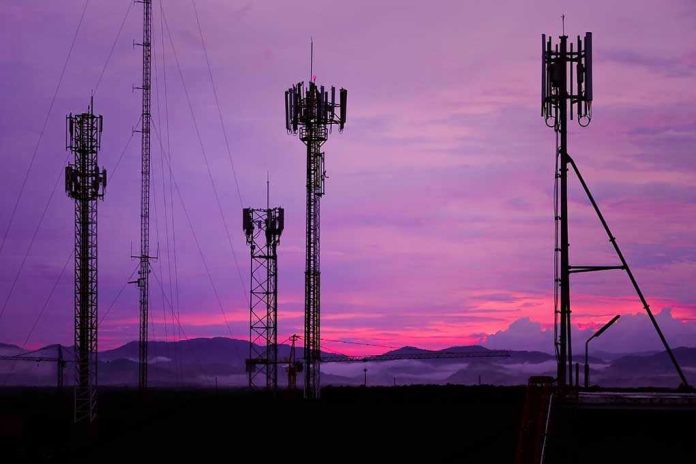
Verizon’s unprecedented layoff plan threatens to leave 15,000 Americans jobless, raising concerns over the future of the U.S. telecom industry.
Story Highlights
- Verizon plans to cut 15,000 jobs, marking the largest layoff in its history.
- This move is a response to slow subscriber growth and fierce market competition.
- The layoffs come under the direction of new CEO Dan Schulman.
- Industry experts warn of potential long-term effects on innovation and service quality.
Verizon’s Strategic Shift Under New Leadership
In a bold move to counteract financial pressures, Verizon Communications Inc. is preparing to cut around 15,000 jobs in the United States. This decision comes under the new leadership of CEO Dan Schulman, who is aiming to address the company’s slow growth in new wireless subscribers and increased competition.
As one of the largest telecom companies in the U.S., Verizon faces challenges from aggressive pricing strategies by AT&T, T-Mobile, and new entrants like cable operators.
The layoffs, expected to begin mid-November 2025, represent approximately 15% of Verizon’s workforce. This restructuring is intended to restore the company’s market position and enhance profitability.
However, it raises significant concerns about job security among employees and the potential for public and regulatory scrutiny.
Market Pressures and Competition
The U.S. telecom market has become increasingly saturated over recent years, with limited growth opportunities. Verizon’s subscriber growth has been lagging, with only 44,000 new monthly bill-paying wireless subscribers in Q3 2025 compared to T-Mobile’s over one million.
This discrepancy highlights the intense competition faced by Verizon, exacerbated by the entry of cable companies into the wireless sector. These market dynamics have forced Verizon to consider drastic measures to remain competitive.
As Verizon navigates these challenges, the company’s leadership is under pressure to deliver results. The decision to implement such a significant workforce reduction reflects a strategic pivot aimed at cost savings and operational efficiency.
Yet, this move could have broader implications for the telecom industry, potentially prompting similar actions by other firms.
Implications for Stakeholders and the Industry
The planned layoffs will have immediate and significant impacts on the affected employees and their families, as well as local economies where job losses are concentrated. The broader telecom workforce may also feel the ripple effects, as this move could set a precedent for further restructuring in the industry.
Analysts note that while cost management is necessary, large-scale layoffs might undermine Verizon’s ability to innovate and provide quality service in the long term.
As the telecom sector grapples with these realities, stakeholders are divided on the layoffs’ necessity and potential outcomes.
Some view it as a critical step for Verizon’s survival, while others criticize the human cost and potential damage to service quality. These developments could lead to further industry consolidation or shifts in competitive dynamics.
Sources:
Verizon to cut 15000 jobs in downsizing effort
Verizon jobs cut biggest in company history—report
Verizon plans 15000 layoffs as it shifts stores to franchises
Verizon layoffs: 15000 to be fired, stock skyrockets as markets fall




